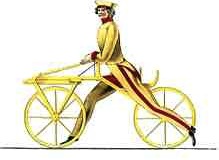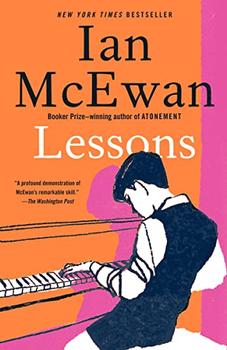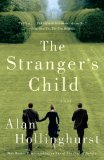Summary | Excerpt | Reading Guide | Reviews | Beyond the book | Read-Alikes | Genres & Themes | Author Bio

A Novel
by Jo BakerThe American debut of an enthralling new voice: a vivid, indelibly told work of fiction that follows four generations of a family against the backdrop of a tumultuous century - a novel about inheritance, about fate and passion, and about what it means to truly break free of the past.
This is the story of the Hastings family - their secrets, their loves and losses, dreams and heartbreaks - captured in a seamless series of individual moments that span the years between the First World War and the present. The novel opens in 1914 as William, a young factory worker, spends one last evening at home before his departure for the navy... His son, Billy, grows into a champion cyclist and will ride into the D-Day landings on a military bicycle... His son in turn, Will, struggles with a debilitating handicap to become an Oxford professor in the 1960s... And finally, young Billie Hastings makes a life for herself as an artist in contemporary London. Just as the names echo down through the family, so too does the legacy of choices made, chances lost, and truths long buried.
The Undertow deserves to be taken seriously. Stylistically, it's a book with a serious flavor... The shining dreams of youth never come easily to fruition, and hope and beauty reveal themselves in flashes. It takes more than one generation to fulfill an ambition, and when luxury and plenty come to the family (enough to eat at every meal, a big house to live in), the younger generation takes the gains for granted. For all its watercolor lightness, The Undertow has a very sober take on the mixed, muddled nature of life...continued
Full Review
(635 words)
This review is available to non-members for a limited time. For full access,
become a member today.
(Reviewed by Jennifer G Wilder).
In The Undertow, the second-generation Billy Hastings makes a name for himself as a racing cyclist in the years between World War I and World War II and goes on to serve in a vital detachment of bicycle soldiers on D-Day in 1944. Bicycle racing had already accumulated a long history by the 1920s and military groups all over the world, such as the British Cyclist Divisions, experimented with bicycle infantry, ambulance transporters, messengers and scouts. (Bicycles were more affordable than horses, and they reduced the need for fuel used by motorized vehicles.) Here are a few significant turning points in the chronology of bicycle history:

This "beyond the book" feature is available to non-members for a limited time. Join today for full access.

If you liked The Undertow, try these:

by Ian McEwan
Published 2023
From the best-selling author of Atonement and Saturday comes the epic and intimate story of one man's life across generations and historical upheavals. From the Suez Crisis to the Cuban Missile Crisis, the fall of the Berlin Wall to the current pandemic, Roland Baines sometimes rides with the tide of history, but more often struggles against it.

by Alan Hollinghurst
Published 2012
A magnificent, century-spanning saga about a love triangle that spawns a myth, and a family mystery, across generations.
Not doing more than the average is what keeps the average down.
Click Here to find out who said this, as well as discovering other famous literary quotes!